Best Medical Alert Systems for Couples in 2025
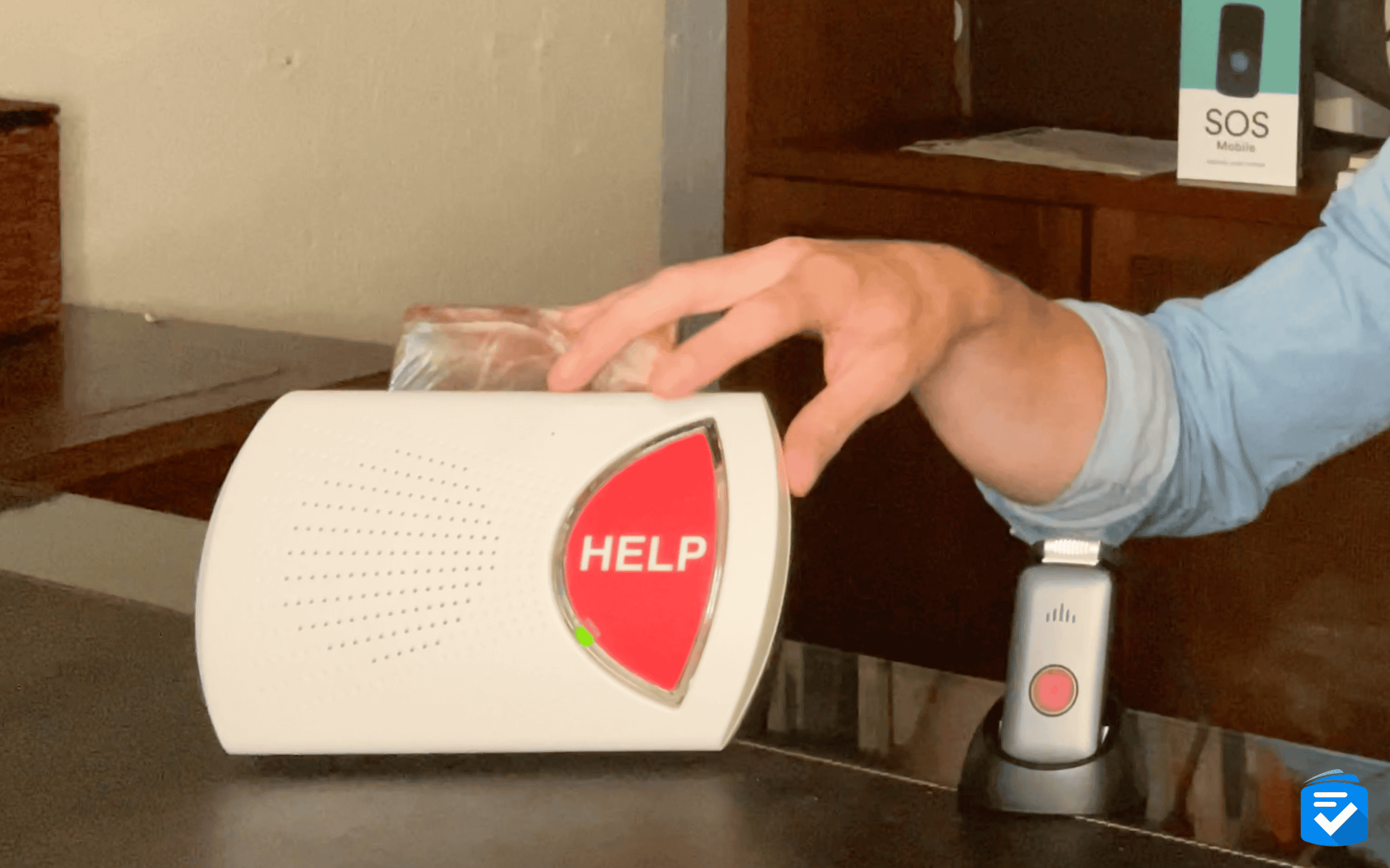
Key Findings
- Bay Alarm Medical supports multiple users on a single medical alert system, and they charge a one-time fee for this service.
- Medical Guardian also supports multiple users; however, they charge $2.99 per month per extra help button.
- For a one-time $39.95 fee, you can add a partner to a LifeFone system.

Why Trust Us?
At TheSeniorList, our team of caregivers, experts, and healthcare professionals conducted over 5,000 hours of in-depth research and testing to recommend the most reliable brands and devices. In this process, our team:
- Tested 50 medical alert devices from 15 different brands.
- Surveyed 1,250 seniors and caregivers on medical alert system usage.
- Consulted with nurses, EMTs, and caregivers who are experts at caring for older adults.
- Published dozens of videos that demonstrate our medical alert system testing.
- Evaluated verified customer reviews of medical alert companies from the Better Business Bureau.
How We Test Medical Alert Systems
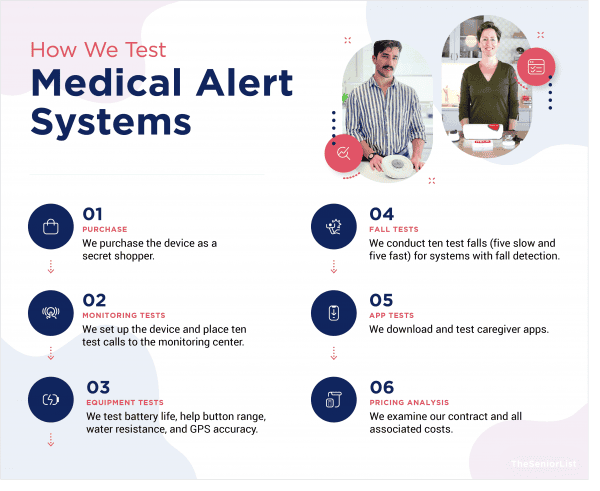
With every medical alert system, I test their response times, durability, and functionality. When evaluating the best systems for couples, I also used the following criteria:
- Availability of extra buttons: Medical alert companies often allow you to use only the equipment included in your purchase. When seeking the best medical alerts for couples, I looked for systems that allowed adding extra buttons so multiple people could use the same connection.
- Affordability: Between fall detection and extra accessories, medical alert systems can become pricey. I made sure the companies on this list offer cheap medical alert systems that don’t overcharge you for spouse coverage.
- Large coverage range: With multiple people using the same system, you’ll want to be sure your home medical alert has a range of at least 1,000 feet so you won’t have to worry about wandering outside the connection range.
FYI: The systems on this list are great for couples, but if you’re looking for more affordable options from $20 per month, read our guide to the best medical alert systems overall.
Our Top Picks
- Bay Alarm Medical : Free Spouse Coverage
- Medical Guardian : Best for Large Homes
- LifeFone : Best With Free Equipment
Best Medical Alert Systems for Couples, Spouses, or Roommates
1. Bay Alarm Medical - Free Spouse Coverage
What We Like Most:
- No extra monthly charge to add your spouse
- Free base station and help buttons
- 16-second tested response times
- Accurate fall detection
Overview
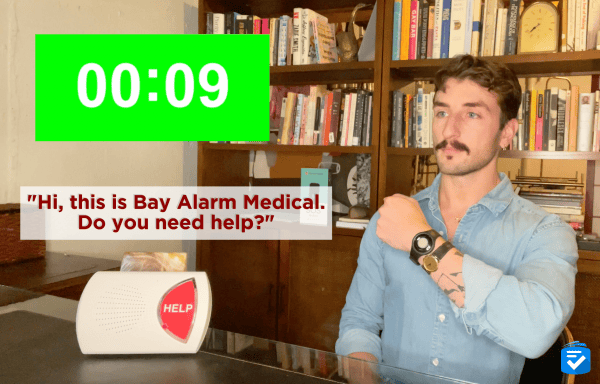
With systems from $19.95 per month, Bay Alarm Medical is already one of the most affordable medical alert providers. If you want to purchase additional buttons for a spouse or roommate, you’ll have to pay only a one-time $39 fee.
Standout Features
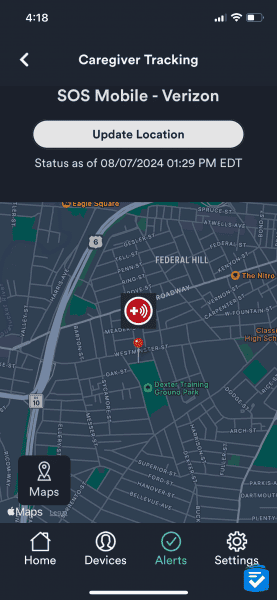
I tested Bay Alarm Medical’s SOS Home system, which can depend on either a landline or cellular network (I chose cellular since my house lacks a landline). The system had a base station and help button, but I added an extra fall-detection button for my partner. When I made him fake a fall to test it, the monitoring center contacted us within 16 seconds — one of the fastest response times I’ve gotten. It worked throughout our home, as long as we were within 1,000 feet of the base station. That wasn’t a problem for our tiny abode, and it shouldn’t be for most homes.
Another cool feature of the help buttons is that they are completely waterproof, which isn’t the case for LifeFone and Medical Guardian. Being waterproof instead of merely water-resistant means I could wear my help button in the tub, while my partner could wear his in the shower or while doing dishes. We didn’t have to worry about the buttons not working, since they’re completely impervious to solids and fluids alike.
Pricing
Bay Alarm Medical’s prices are some of the lowest of any medical alert company, largely because its equipment is free. I didn’t pay anything up front for my home system — only a one-time charge of $39 for the extra help button. The monthly cost with the extra button is $29.95 per month. If you add fall detection, it will cost an extra $10 per month and an additional one-time $30 charge for the fall detection pendant.
Bay Alarm Medical doesn’t charge activation fees for its in-home systems, and all contracts are month-to-month with a 30-day trial period to start.
Drawbacks
I appreciated being able to see my devices’ locations and battery levels on the Bay Alarm Medical app. It didn’t have all the caregiver tracking features of the MGHome Cellular system from Medical Guardian, however, which let me see if devices were on or off and whether they were connected to the monitoring center.
Our Verdict
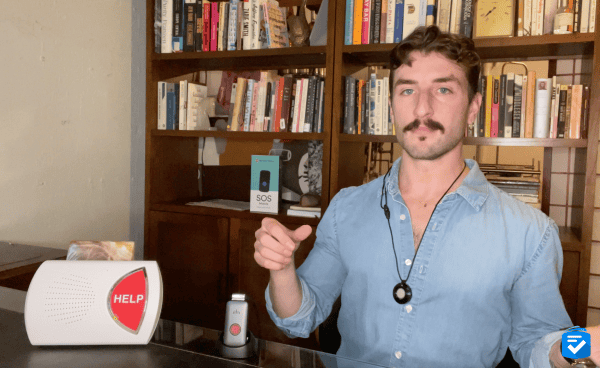
If you want an in-home medical alert system but don’t want to pay for two monitoring plans, you’ll save hundreds with the SOS Home. To learn more about the company and its other systems, read my full Bay Alarm Medical review.
Pros
- One monitoring charge for multiple users
- Optional fall detection
- Cellular or landline connectivity
- Waterproof help button
Cons
- Caregiver tracking is limited to battery level and location
- One-time $30 charge for fall-detection buttons
2. Medical Guardian - Best for Large Homes
What We Like Most:
- 1,400-foot range
- 32-hour battery backup
- Eight-second response time
- Robust caregiver tracking
Overview
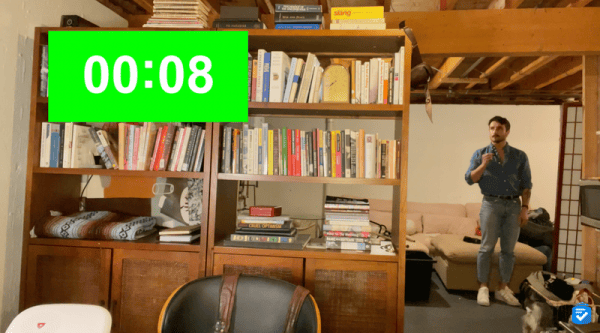
With my MGHome Cellular system from Medical Guardian, I had the option to lease an additional pendant or wall button for only an extra $2.99 to $4.99 a month. There were no additional equipment fees. That’s a small price to pay to monitor an entirely new person.
Standout Features
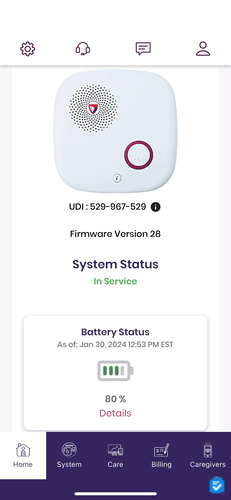
The MGHome Cellular is a cellular-connected home system that comes with a hub and a button, which you can wear as a bracelet or a pendant. For your spouse, you can add an extra pendant, with or without fall detection, and a wall-mounted button, with or without voice activation. Medical Guardian is known for its fast response times, which were as low as eight seconds in my tests — the fastest I’ve come across. As long as I had the buttons within 1,400 feet of the hub, they worked perfectly. That’s the largest range I’ve seen from a home medical alert system, which means it’s a good option for people with larger houses.
MGHome Cellular’s help buttons aren’t waterproof, but they are water-resistant. That means they can be worn in the shower, but not totally immersed in water. For the bath, you may want to get a wall-mounted button — ideally with voice activation — in case you’re unable to reach it after a fall.
Pricing
Medical Guardian costs slightly more than Bay Alarm Medical. The company charges a one-time $149.95 for the MGHome Cellular. You’ll pay $38.95 per month for monitoring, too. There will also be additional monthly charges for extra devices.
- Pendant or wall button: $2.99 more per month
- Voice-activated wall button: $4.99 more per month
- Fall-detection pendant: $10 more per month
Unlike LifeFone and Bay Alarm Medical, Medical Guardian does not offer a trial period. There’s no cancellation fee, but to return purchased equipment you pay a $50 restocking fee.
Drawbacks
There’s no way around it. Medical Guardian systems will cost more than Bay Alarm Medical’s. Additionally, Bay Alarm Medical offers 30-day trial periods, while Medical Guardian does not.
Our Verdict
For just a few more dollars per month, you can get reliable at-home coverage for you and your spouse with the MGHome Cellular. To learn more about the company, read my Medical Guardian review.
Pros
- Fast response time
- Monthly contracts available
- 1,400-foot range
- Low prices for extra monitoring
Cons
- Poorly rated app
- No trial period
3. LifeFone - Best With Free Equipment
What We Like Most:
- No charge for equipment
- No monthly fee for extra buttons
- $5 for fall detection
- Quick response times
Overview
LifeFone’s At-Home Cellular system includes a base station and wearable help button for $34.95 per month. That’s a bit more expensive than average, but extra help buttons require no monthly fees and fall detection costs only $25 per month.
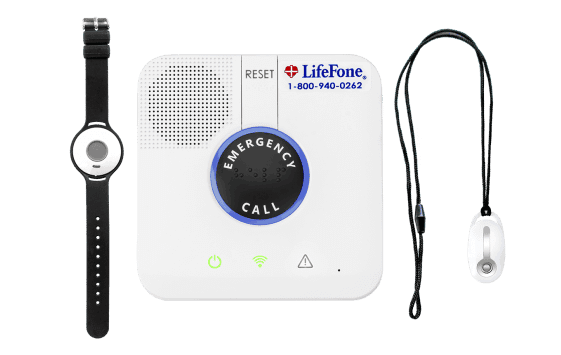
Standout Features
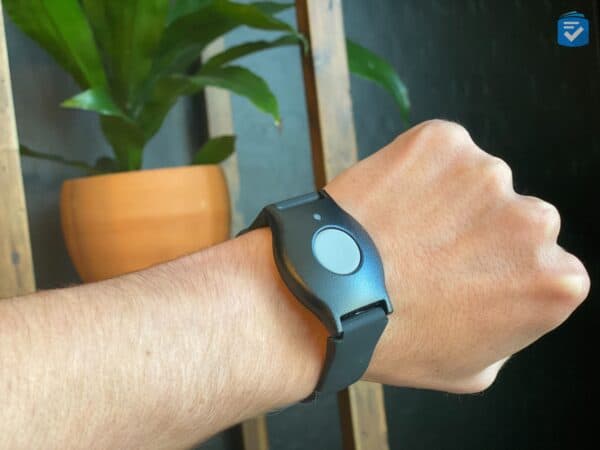
LifeFone impressed me with its quick response times. In my 10 test calls, urgent-response agents answered in an average of 25 seconds. I also appreciated the long in-home range of its help buttons — up to 1,300 feet, which is more than enough for most homes.
In terms of spouse monitoring, LifeFone charges a one-time $39 fee for an extra help button, whether it’s a wristband or necklace. It’s ideal for a spouse or roommate, and it will operate on the same LifeFone system so you won’t have to pay another monthly fee.
Fall detection is optional with this system, but I recommend adding it since falls are a leading cause of death for seniors in the U.S. You want to be around for as long as possible for your spouse, so it’s worth the extra $5 per month.

Pricing
LifeFone costs are pretty low, especially because the company doesn’t charge for equipment or activation. The only thing I paid for was monitoring, which didn’t get more expensive with two people. It ranges from $30.95 to $34.95 a month on a monthly, quarterly, or annual basis, with lower prices the longer the term length.
Not only does LifeFone have a 30-day trial like Bay Alarm Medical, but it’s also the only medical alert company I know of that offers a lifetime warranty on its products. When you buy it for you and your spouse, you have a guarantee that if anything breaks you can get it replaced for free.
>> Compare: Medical Guardian vs. LifeFone
Drawbacks
LifeFone surprisingly does not offer a mobile app with the At-Home Cellular system, only with its VIPx at-home and mobile systems (and only for an additional $8 a month). For a free app with all systems, check out Bay Alarm Medical or Medical Guardian. Bay Alarm Medical is better for iOS users, while Medical Guardian is better for Android users.
Our Verdict
If you want to save money and don’t care about caregiver tracking for your at-home system, the At-Home Cellular package from LifeFone may be the right medical alert system for you and your spouse. To learn more about the provider, read my full review of LifeFone.
Pros
- No equipment fees
- Lifetime warranty
- Quick response times
- 1,300-foot range
Cons
- No app for caregivers
- Help buttons are water-resistant, not waterproof
Buying a Medical Alert System for Couples
No medical alert system is made specifically for couples, but most medical alerts allow you to purchase additional buttons and use them on the same system. Some companies even let you use multiple buttons under the same monitoring plan without requiring any more money for the second person.
These mix-and-match offers are ideal for couples of different sexes and ability levels. The best medical alerts for women, for example, feature vanity pendants that turn help buttons into stylish pieces of jewelry, but that may not be what a husband wants. Alternatively, although one half of a couple may be prone to falls and want a device with fall detection, the other half may not need it. When buying a medical alert system for couples, make sure you have the flexibility to find devices that work for each of you individually and as a pair.

Bottom Line
You may not have mentioned medical alert systems in your vows, but they’re an undeniable part of “in sickness and in health, ’til death do us part.” Medical alert systems allow you to age in place with your partner rather than going to a nursing home, so make sure the one you buy fits both of your unique needs.




